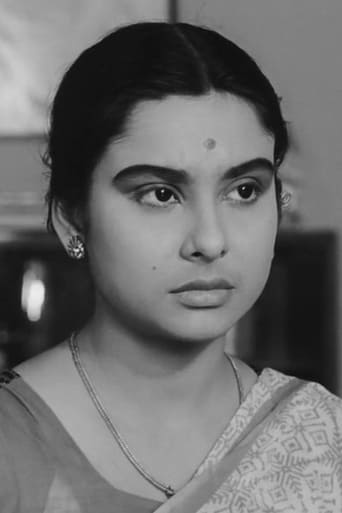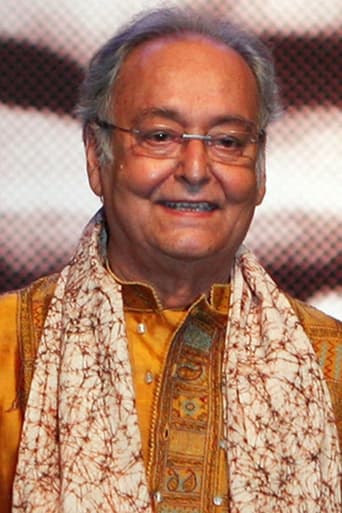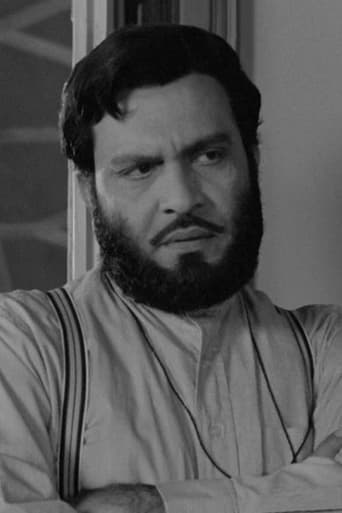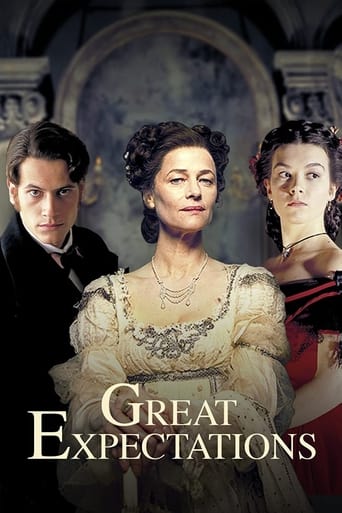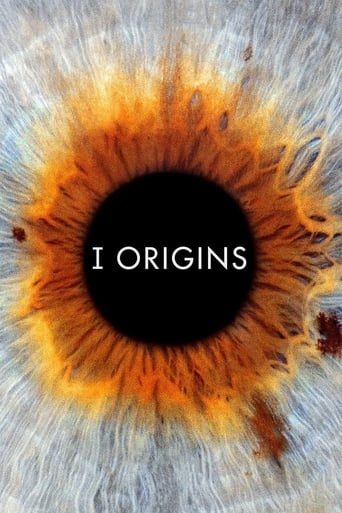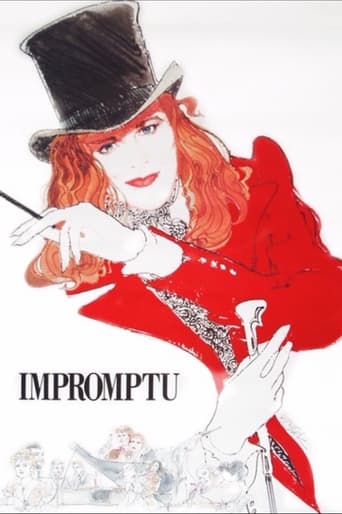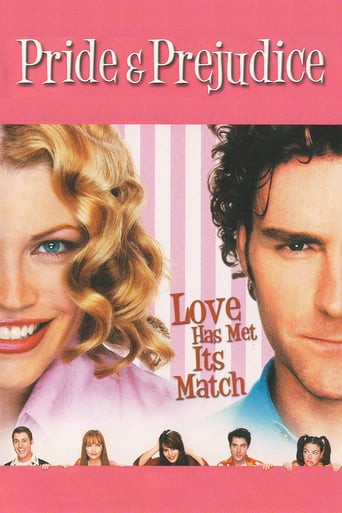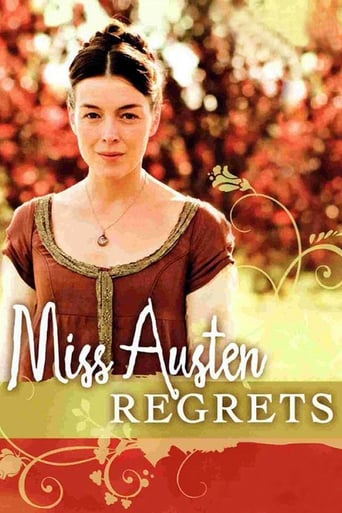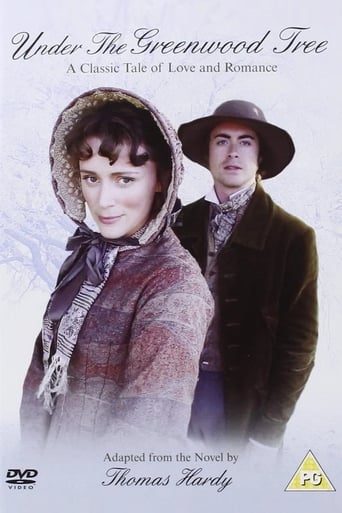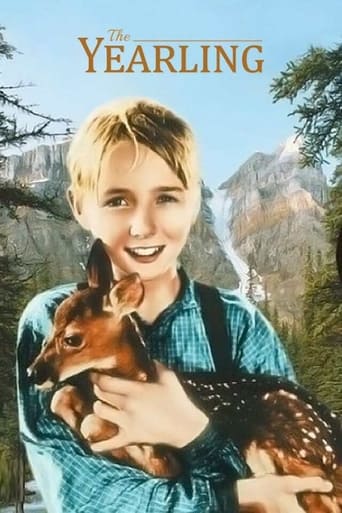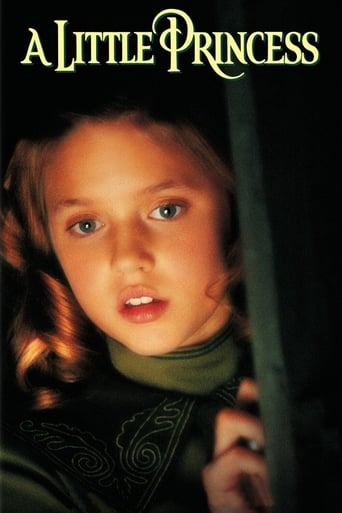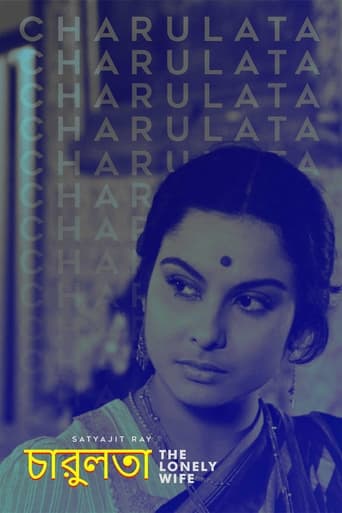
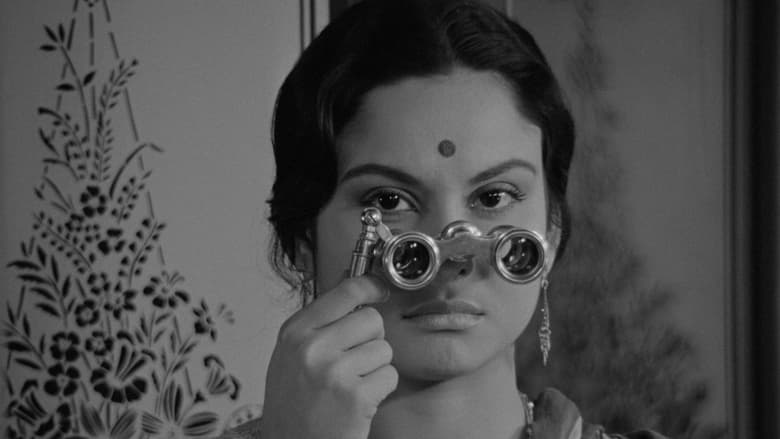
Charulata (1974)
In 1870s India, Charulata is an isolated, artistically inclined woman who sees little of her busy journalist husband, Bhupati. Realizing that his wife is alienated and unhappy, he convinces his cousin, Amal, to spend time with Charulata and nourish her creative impulses. Amal is a fledgling poet himself, and he and Charulata bond over their shared love of art. But over time a sexual attraction develops, with heartbreaking results. Preserved by the Academy Film Archive in partnership with The Film Foundation and Merchant and Ivory Foundation in 1996.
Watch Trailer
Cast


Similar titles
Reviews
Also known as THE LONELY WIFE for the anglophone, adapted from Tagore's novella, CHARULATA is Satyajit Ray's sally into the Bengali upper class of the Victorian Calcutta in the 1880s, and the titular heroine is Charu (Madhabi Mukherjee, the leading actress in THE BIG CITY 1963), a young wife of Bhupati (Shailen Mukherjee), a liberal-minded intellectual who runs a politcal newspaper "the Sentinel". The plot moves in a glacial pace and Ray patiently magnifies Charu's stagnation and boredom with so unobtrusive a dexterity that we might not even realize our own brazen intrusion, house-bound and lassitude-stricken, Charu takes pleasure in reading, but her reading material is too sentimental for her husband's noble taste, only if a kindred spirit would crop up to keep her company, and that man is Amal (Soumitra Chatterkee), Bhupati's cousin who has just graduated from college, and is endowed with a luxury of an indeterminate goal in life, apart from a flair for literature and music similar to Charu. A workaholic notwithstanding, Bhupati is fully aware of Charu's loneliness, whose life is disproportionally constituted by wandering in their fancy domicile, perusing from books to magazines and playing cards. He is also judicious enough to discern Charu's knack of writing, so he consigns Amal to secretly motivate her into writing her own stories, a mission too challenging for a drippy Amal to accomplish, instead he is actuated to write an essay himself and consequently gets it published, which causes a seismic jolt in Charu.At first, Charu's reaction seems irrational, but what Ray hammers home to viewers is the metaphor of writing, to Charu it is established as a liberation of her suppressed feelings, a kindred spirit that she connects with a laidback, youthful Amal but not with her mature and loving husband, that is why she asks Amal to keep his writing private, because it is forbidden. Once the simple-minded Amal publishes his work, it stirs Charu as an initiation of her own countermove, a some sort of subconscious competition she knows she can no longer resist, and it turns out, she is the more talent writer, she declares her affection to Amal, in a subtle fashion of preparing for his paan, it wrong-foots Amal and the fallout is tangibly presaged by a shot of both behind the iron bars of the window.When Bhupati's fourth estate undertaking comes in for a severe setback due to a betrayal of trust, a deeply guilt-ridden Amal can not bear of adding insult to injury and chooses to abscond by himself, which leaves a devastating Charu in the lurch, ultimately its maudlin coda shatters the seemingly propitious emotional renewal of the couple with an equivocal gesture (materializes almost like a glitch) after Bhupati gets a glimpse of Charu's wailing over his departed cousin. As accomplished as one can contest for its artistry, particularly of its majestic composition against the impeccably designed interior setting and a steady hand in emotional drilling (Madhabi Mukherjee is a beady heads-turner and Soumitra Chatterjee exudes sympathetic insouciance most of the time), CHARULATA cannot convince this reviewer that it is Ray's best, as a profound demonstration of a wife/woman's internment and emancipation off her own bats, it teeters on the thin edge of over-egging the central melodrama, by comparison, THE BIG CITY is a much competent chord-striker.
The lonely wife (Madhabi Mukherjee) of a newspaper editor (Sailen Mukherjee) falls in love with her visiting cousin-in-law (Soumitra Chatterjee), who shares her love for crafting literature.I make no secret of the fact that I simply do not care for Indian films. I can't really express why, but they do not appeal to me. With regard to Ray, I was not moved by the Apu trilogy. However, after seeing "The Music Room" (1958) I found there was at least one Indian film I liked.And now "Charulata". Much has been written about how this film has more of a Western sense to it, even invoking the name of Mozart. That may be so. But I also appreciate that at this point Ray had access to better equipment, apparently. Cinematography-wise, this is his best-looking film, and he experiments a little bit in a dreamlike way that I find very effective. We have the right balance -- not that low grade film India had in the past, and not the overly polished junk of Bollywood. This and "Music Room" may be the pinnacle of Indian film.
Charulata is Satyajit Ray's masterpiece. No other movie is so brilliantly subtle, so timeless in quality. Indeed, Ray himself described Charulata as the only flawless movie he had directed.Like the Apu trilogy, and many other Ray movies, Charulata deals with universal themes. Unlike the Apu trilogy, Charulata is set in an urbane, intellectual setting. This might be a turn off for some foreign viewers. When it was released in India in 1964, it was deemed controversial because of its depiction of an extramarital relationship. Yet no movie Ray made, not even the celebrated Apu trilogy, treats the themes of love, growth and loyalty with as much insight and sensitivity as Charulata.Every scene in this movie is a gem, there are nuances in every movement, poetry in each look. Richly deserving multiple viewing, Charulata is the most perfect Ray movie.
I remember reading through Satyajit Ray's list of things that people from outside India would fail to get in "Charulata" of all his films (up to 1980, anyway) the one he thought was most "superficially" accessible to Westerners and thinking to myself: "But I DID get all this... at least, more or less."In Bengal society (Ray writes) a woman's brother-in-law holds a privileged position; the two are EXPECTED to form a special friendship, and she is allowed to be more intimate with him than with anyone else to whom she's not related by blood (apart, of course, from her husband). Ray is right. Most Westerners don't know this. I certainly didn't. But we're able to infer as much of it as matters from the film itself: we can tell that Amal and Charulata expect, before they fall properly in love, a fair degree of freedom in negotiating their friendship; that this is okay by Bhupati; that this isn't considered odd by any of the participants; that it (probably) WOULD be considered odd were Amal an outsider... and we can tell a good deal more besides; this is, as everyone acknowledges, a film of exceedingly rich characterisations. What we CAN'T tell from the film alone is the extent to which the expectations and roles of the three central characters are duplicated in other marriages across India. But this doesn't matter. This is a chamber drama, not an allegory.Ray also lists some literary allusions which Westerners are almost certain to be blind to, but again, I think he's underestimated the extent to which he gets across, in the film alone, all he needs to get across. We can tell, from the way the characters react, what the allusions mean; just as an allusion to Achilles' heel, if properly used, will make sense to (and add depth for) an audience entirely unfamiliar with Greek legend. Even the film's makes sense to outsiders in a way Ray thinks it won't. It's a Scottish tune (I know this because I recognised it, but you can tell it's Scottish even if you don't) with Bengali lyrics; we can tell it's a Western song, from (more or less) the land which currently rules over India, which at least some Indians have adopted as their own, which is popular enough for Amal to expect others to be familiar with it, etc. (I have to admit, though, that something was being conveyed by the lyrics that wasn't being adequately conveyed by the subtitles.)It's a tribute to Ray's skill that even he doesn't realise just how much context he's managed to import into "Charulata". Of course, he's right in that nobody will get everything; Ray himself admits to not understanding the meaning of his own (hopeful? cautious? distancing?) final freeze frame ("I only knew that it was the right way to end the film"), and, I need hardly add, I don't either.Ray was wrong to think that the allusions fall flat on Western ears or that some of the necessary social context is impenetrable, but the film would still have something to offer even if he weren't: the characters would still be as alive and real, the respect with which they're treated would be just as apparent; the film would still, in short, be a beautiful one.


